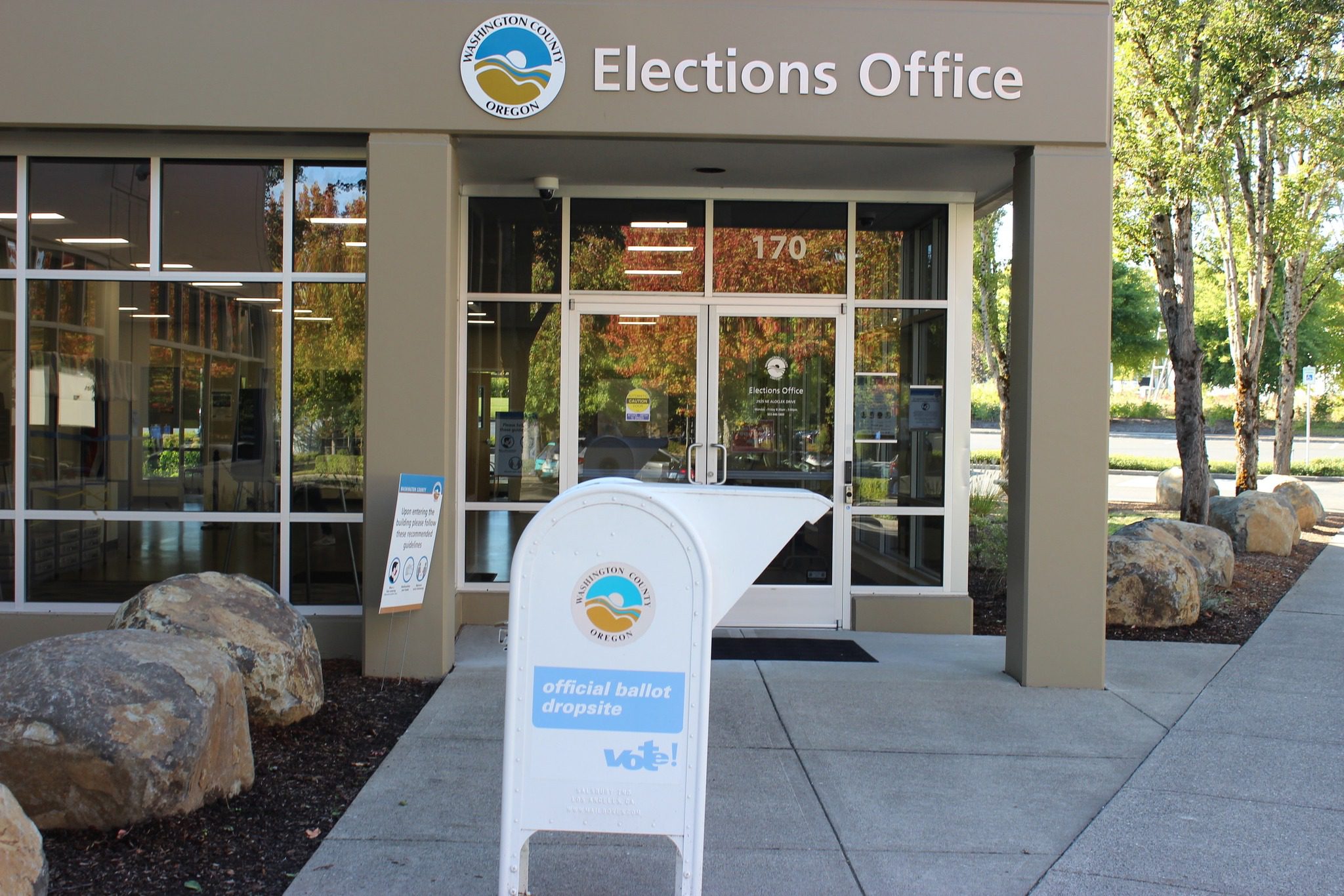In a stunning revelation, legal documents show Oregon elections officials have inadvertently admitted that voting systems are vulnerable to attacks even when not connected to networks. This comes via the confusing legal mess that voter integrity organization Clean Voter Rolls has found themselves in, thanks to their simple request to examine the ballots from the 2020 election.
Clean Voter Rolls made a public records request of Washington County elections, led by Elections Manager, Mickie Kawai. The county, just west of Portland, initially denied the request, but the district attorney overturned the denial and ordered the disclosure of the ballots.
Then the county sued the individual requestor, Tim Sippel, to stop the disclosure of the ballots. Soon the Secretary Of State’s office and Department Of Justice intervened on behalf of the county. Countless dollars are now being spent by government entities to stop the public from seeing the ballots. One man is now dealing with the full brunt of the state government coming after him.
Secretary of State Shemia Fagan sought a restraining order against Sippel to forbid him from sharing the data he already has. The order was granted and has been extended.
The state and county are arguing that simply showing the ballot images from the election could somehow compromise the computer systems, and that’s why they shouldn’t have to show the ballots to the public. “Even when systems are not directly connected to networks, they are vulnerable to attack through physical or wireless access,” argues state Attorney General Ellen Rosenblum in her motions, while also saying “If the Court enters a judgment requiring the release of the ClearBallot database, that judgment would compromise the security of the election systems used in 15 Oregon counties.”
This seems to contradict everything we’ve been told about the 2020 election and the computer systems, which dozens of elections directors and officials told us were not connected to the internet and thus couldn’t possibly be hacked.
In the state’s initial complaint, they specify “Disclosure of the internal components of the voting system, such as the SQL database architecture, can allow for malicious actors to identify additional ways to attack the elections system and compromise Washington County’s elections infrastructure specifically, and Oregon elections infrastructure more broadly. Further, such a disclosure creates risks to elections infrastructure to any jurisdiction nationally using this system.”
All of the case documents can be found at this Dropbox link. You’ll note that the state does not specify how exactly showing the ballot images from 2020 creates this security risk, they just make vague references.
The latest press release from Clean Voter Rolls reads:
Through a public records request, Tim Sippel sought the ballot database for a public test of the Washington County election system. The County denied the request. The Washington County District Attorney then ordered the County to produce the database. In response, Washington County filed a lawsuit in the Washington County Circuit Court seeking a declaration that it does not have to produce the database. The Oregon Secretary of State has now intervened, joining the case against Mr. Sippel.
Through a separate public records request, Janice Dysinger of Clean Voter Rolls, sought among other things the ballot images from the November 2020 Election. Among the documents provided by the County was a backup of the database for the November 2020 Election, which the county contends it did not intend to produce.
When Washington County learned that Mr. Sippel had the copy of the 2020 Election Database produced by Washington County, they sought and were granted a temporary restraining order (TRO) preventing Mr. Sippel from copying or disseminating the database. Washington County and Oregon claimed that it would be irreparably harmed if Mr. Sippel distributed the database because it would present some unspecified security risk to the election system in Washington County and 14 other Oregon counties.
The parties have proposed a trial date of June 21 and 23, 2022. In the meantime, the parties have agreed to extend the TRO for another 10 days and to negotiate a protective order so that experts for Mr. Sippel can have access to the database for the purpose of rebutting Washington County’s case.
Mr. Sippel contends the ballot database is a public record, he is entitled to possess it, and that the County has no grounds to contend that dissemination of the database to the public would be a security risk.
In a world where organized criminal activity occurred during the 2020 election to inject a vast number of counterfeit ballots to the election systems in multiple states, as demonstrated by the recent movie 2000 Mules, it is extremely important that Washington County make public the 2020 Election Database. The fact that Washington County is fighting as hard as it can to hide this information from the public raises the question: What are they hiding?
Sippel tells us that Free Oregon is assisting with the legal fees. You can donate here on the FreeOregon.US website.
You can also donate to Clean Voter Rolls via their Anedote by clicking here.
You can contact the Washington County elections manager, Mickie Kawai, at (503) 846-5800. Perhaps you can make your own records request.
Secretary of State Shemia Fagan can be reached at 503-986-1523.
State Attorney General Ellen Rosenblum can be reached at 503-378-6002.
Ironically enough, Washington County is currently recruiting for a new elections manager.
Sippel is being represented by Steve Joncus, who has represented clients who also fought Covid mandates.
The Gateway Pundit will follow this story as it develops.
The post Oregon County Suing Voter Integrity Group To Stop Examination Of 2020 Ballots, Admits Systems Can Be Hacked! appeared first on The Gateway Pundit.

